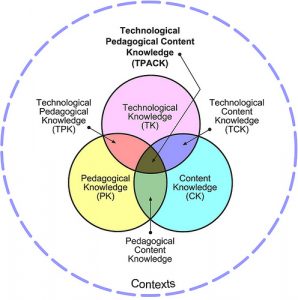Mindful Pedagogy: The Right Tool for the Job
David S. Noffs & Jessica Mansbach
The School of Professional Studies’ online master’s program in Information Design Strategy
The Presenters
Jessica Mansbach, Ph.D.
Dr. Jessica Mansbach is currently a Learning Designer at Northwestern University’s School of Professional Studies. In this role, she partners with faculty throughout the School to design online courses. Jessica also teaches online courses for the School’s Information Design Strategy masters program. She has also taught for Northwestern University’s School of Education’s School of Education and Social Policy’s Higher Education Administration and Policy program She holds a doctorate degree in Higher, Adult, and Lifelong Education from Michigan State University. Before joining the School of Professional Studies, Jessica coordinated a teaching apprenticeship for College of Education graduate students at Michigan State University.
David S. Noffs, Ed.D.
David Noffs has spent most of his life designing innovative learning environments. From his work for almost two decades designing hi-tech mobile health education classrooms in rural and urban grade schools in Australia, New Zealand, Great Britain, and the United States, to his work in face to face and virtual classrooms beginning at Columbia College Chicago in 2005. As an Instructional Technologist and Designer in the Center for Instructional Technology he oversaw the development of online interactive tools and virtual learning communities in both academic and administration departments across the campus. He joined the Northwestern School of Professional Studies in 2015 as a faculty developer. His doctoral dissertation in Adult and Continuing Education from National Louis University is entitled, Resonating Frequencies of a Virtual Learning Community: An Ethnographic Case Study of Online Faculty Development at Columbia College Chicago.
Introduction
The School of Professional Studies offers an online master’s program in Information Design Strategy. One of the courses in the instructional design concentration is IDS 425: Learning Environment Design. In a class about learning design, modeling of thoughtful decisions about how technology supports the learning outcomes is particularly important. IDS 425 is designed with an eye to practicing mindful pedagogy. Here, we illustrate what we mean by mindful pedagogy by sharing an example: the use of Nebula as a tool for discussion about learning theories. The visual nature of Nebula models the learning theories being discussed and, in particular, shows students how online technology can and should be matched with the intent of online learning outcomes. This poster illustrates the importance of carefully determining how to use a technology tool to support course learning outcomes, as opposed to using a technology tool because it is the easiest tool to manage in the LMS or because it is the newest tool on the market.
Deliberate Pedagogy: A mindful approach to the use of technology in online courses.
Multiple learning theories have been developed in recent years to try and account for the impact of technology on teaching and knowledge acquisition in the information age. Some of these include Situated, Distributed, and Socially Shared Cognition, Online Collaborative Learning Theory (OCL) and Connectivism. In addition, TPACK has created a convincing lens through which to view the intersection of multiple competencies.
TPACK stands for Technological Pedagogical Content Knowledge. The TPACK framework outlines different areas of knowledge educators should have. Educators must demonstrate content knowledge, pedagogical knowledge, and technological knowledge. On its own, neither area of knowledge is a sufficient condition for effective instruction. Educators must be adept and knowledgeable in all three areas. Knowledge of how to support learning of content through appropriate pedagogical strategies must be complemented by deep knowledge of how to use technology to support the content and the pedagogy. The TPACK framework lays out a disciplined pedagogical approach to the use of technology rather than “tech anarchy”or technology for tech’s sake.
How course learning outcomes can be aligned with an innovative teaching and technology tool.
This interactive graphic depicts a Nebula discussion. Each of the icons on the image provide some more information on how the discussion supports the weekly learning outcomes.
Deliberate Pedagogy case study: IDS 425 Nebula discussion on learning theory: Modeling the subject matter using teaching and technology tools.
An example of deliberate pedagogy by design can be found in week three of IDS-425. We use a relatively new tool in a way that models the very subject of the week’s topic. That tool is Nebula, the product of a team of professors and programmers here at Northwestern. Nebula provides a graphic representation of real human interaction, levels of activity and, logically, student interest…something that we personally find enormously useful and important when striving for a more learner-centered online course environment. Furthermore, Nebula represents a way of seeing one of the week’s learning theories, Connectivism. As our discussion grows, so does the the network graph, various nodes and areas of interest based on the actual community discussion. And so shared information from individuals becomes community knowledge. Nebula lets us not only be a part of that, but see it visually.
The video segment below is from the introduction to week 3 in IDS-425 and helps position the technology being used for the week’s discussion on learning theories.
What deliberate pedagogy means to online instructors, course designers and instructional technologists.
As more reliable and innovative technology tools become available to educators, learning designers and technologists should try to encourage faculty to utilize tools guided by deliberate pedagogy rather than for the sake of just using cool stuff. In some cases technology can be used for entertainment value rather than having any true pedagogical value or design strategy. While making course more entertaining is not necessarily egregious, with careful planning and thought, it is possible to capitalize on the capabilities of existing and emerging online teaching technologies to construct high quality online courses.
Student testimonials.
“The tools we used in IDS 425 taught me that distance learning environments do not have to be business as usual. I had taken discussion boards for granted as a part of distance learning, and I was accustomed to the typical question and answer format. In IDS 425, we used Yellowdig and Nebula, which challenged my assumptions around what online discussions could be like. Yellowdig was like a cross between a discussion board and a blog. The visual nature of Yellowdig lended itself well to sharing content that can often times get ignored or just not posted altogether in a platform like Canvas. Nebula was an interesting platform as it allowed us to see our discussions unfolding visually. Each conversation started off as a node and each new message branched off from that node. It helped me see how much I and others had participated and helped me identify threads I had not participated in yet.” – Carla Karijolich, Graduate Student, IDS-425
“In online classes, building community is both vital and particularly challenging. In IDS 425—Learning Environment Design one of our first tasks was to create an Online Learning Community Guidelines to create and to underpin our own learning environment. Since class members were far-flung, we worked online using two tools: Google Docs and Blue Jeans. The pairing allowed us to work synchronously and asynchronously. Working on the document independently ensured each participant’s voice was heard and valued. Working together on the document in real time, with both video and audio, helped us to connect to each other personally.
We were very happy with our community’s founding document and returned to it regularly for a wide range of purposes, from checking team mates’ general availability to reminding ourselves of our goals for the class. Had we written together only face-to-face or on Blue Jeans, I doubt the document would have been as rich and useful as it was. Had we only worked independently on the Google Doc, I doubt it would have been as cohesive and authentic as it was.” – Leslie Fischer, Graduate Student, IDS-425
Recommended Resources
Here are some resources to learn more about Nebula and TPACK.





معارض اثاث فرنسي كلاسيك تتنوع القطع المعروضة في معارض الأثاث الفرنسي الكلاسيكي من الكراسي والطاولات إلى الأسرّة والمرايا، مما يمنح الزوار إمكانية اختيار قطع تتلاءم مع أذواقهم واحتياجاتهم. سواء كنت تبحث عن قطع تزيّن غرفة المعيشة الخاصة بك أو ترغب في تجديد غرفة النوم، ستجد تشكيلات واسعة تلبي تلك الاحتياجات.